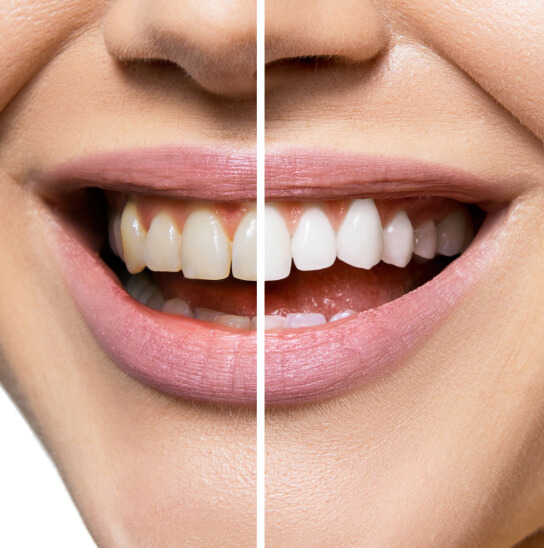Bright Smiles Ahead: The Ultimate Guide to Effective Teeth Cleaning
Welcome to your go-to resource for a glistening, healthy smile. Recognizing the integral role oral hygiene plays not only in our daily interactions but also in our overall well-being is the motivation behind this comprehensive guide. Let’s dive into the world of teeth cleaning, demystifying practices that promise to boost not just the radiance of your smile but also bolster your health from the roots of your gums to the heartbeats in your chest.
The Basics of Teeth Cleaning
The foundation of effective teeth cleaning lies in mastering the essentials. Implementing a routine that safeguards the longevity and health of your pearly whites begins with understanding the core steps of dental care.
Proper brushing techniques can significantly diminish the risk of developing cavities and gingivitis. To ensure you’re making the most out of your daily brush, follow these tips:
- Use a soft-bristled toothbrush to avoid gum damage. The soft bristles are gentle on your gums while effectively removing plaque and debris.
- Opt for fluoride toothpaste to fortify tooth enamel. Fluoride helps to strengthen your teeth, making them more resistant to decay and acid attacks.
- Employ gentle, circular motions to clean all surfaces of your teeth. This technique ensures that you reach every nook and cranny, removing plaque and food particles from every angle.
- A complete brushing session should last at least two minutes, twice a day. Set a timer or use a toothbrush with a built-in timer to ensure you’re dedicating enough time to thoroughly clean your teeth and gums.
By following these detailed brushing techniques, you can elevate your oral hygiene routine and maintain a healthy, beautiful smile.

Professional Teeth Cleaning
Choosing the Right Toothbrush and Toothpaste
Selecting the appropriate tools is pivotal in achieving an effective oral hygiene regimen. When it comes to toothbrushes, it is important to opt for one with a comfortable handle that ensures a firm grip. Additionally, consider a toothbrush head size that can easily reach all areas of the mouth, including the back molars, for a thorough cleaning. For individuals seeking an even more comprehensive cleaning experience, an electric toothbrush may be a suitable choice. These toothbrushes provide additional plaque removal with less effort, ensuring a more thorough oral care routine.
In terms of toothpaste, it is crucial to choose a product that caters to your specific dental needs. For those prone to cavities, a fluoride-rich formula will help prevent tooth decay by strengthening the enamel. Individuals with sensitive teeth can find relief with a desensitizing toothpaste that reduces discomfort caused by hot or cold foods and drinks. If you are looking to remove surface stains and brighten your smile, a whitening toothpaste can effectively tackle this concern. On the other hand, all-around protection toothpastes offer a comprehensive formula to address a range of oral health concerns, making them a great option for overall oral care.
When shopping for oral care products, it is always advisable to look for a toothpaste that carries the American Dental Association (ADA) Seal of Acceptance. This seal indicates that the product has met the ADA’s rigorous standards for safety and effectiveness, providing you with peace of mind and confidence in your oral care routine. By paying attention to these details and selecting the right tools and products, you can ensure a thorough and effective oral hygiene routine that promotes optimal dental health.
Importance of Flossing and Mouthwash
Flossing is a crucial and often overlooked component of maintaining good oral hygiene. It plays a vital role in dislodging food particles and plaque from between teeth, where a toothbrush alone cannot reach. By regularly flossing, you can help prevent gum disease, tooth decay, and even reduce bad breath by removing trapped food and bacteria.
The technique for flossing is simple yet effective. Take approximately 18 inches of floss and wind it around your middle fingers. Gently guide the floss between your teeth using a rubbing motion, ensuring you go beneath the gum line. Curve the floss around the base of each tooth to thoroughly clean the sides. It is recommended to floss at least once a day to maintain optimal oral health.
While mouthwash is a valuable addition to your oral care routine, it should not replace brushing and flossing. An antimicrobial mouthwash can effectively kill bacteria that cause plaque, gingivitis, and bad breath. On the other hand, a fluoride mouthwash can help strengthen enamel and prevent tooth decay. When using mouthwash, be sure to swish it around your mouth for the full recommended time—usually 30 seconds to a minute—to allow it to fully coat your teeth and gums.
To ensure the effectiveness of the mouthwash, consider choosing a product with the ADA Seal of Acceptance. This seal indicates that the mouthwash has met the American Dental Association’s standards for safety and efficacy.
However, it’s important to note that mouthwash should not be used by children under six years of age due to the risk of ingestion. As always, consult with a dental professional for personalized advice and recommendations to maintain your oral health.
Advanced Teeth Cleaning Techniques
While basic teeth cleaning habits form the cornerstone of oral hygiene, adopting advanced techniques can enhance your ability to combat plaque and maintain a healthy mouth. These advanced strategies can be particularly effective for those who have more complex dental needs or are looking for ways to further optimize their oral health routine.
- Water Flossers: Using a water flosser can be a complete game-changer for maintaining oral hygiene, especially for individuals with braces or dental restorations. Unlike traditional floss, which can be difficult to maneuver around these devices, a water flosser utilizes a gentle yet powerful stream of pulsating water to effectively and efficiently remove stubborn food particles and plaque. It effortlessly reaches between teeth and below the gumline, promoting a thorough and satisfying clean for a healthier, happier smile.
- Interdental Brushes: Interdental brushes, also known as interproximal brushes, are specifically designed to effectively clean the spaces between teeth that are too large for traditional floss to reach. These small, cylindrical brushes feature fine bristles that can easily maneuver into those hard-to-reach areas, removing plaque and food debris with precision. By incorporating interdental brushes into your oral hygiene routine, you can enhance gum health and maintain a cleaner, healthier smile. Whether you have braces, dental implants, or simply prefer an alternative to flossing, interdental brushes offer a convenient and effective solution for optimal oral care.
- Tongue Scraping: Don’t overlook the importance of taking care of your tongue. Did you know that it can harbor bacteria that not only cause bad breath but also contribute to dental issues? Fortunately, there’s a simple solution: tongue scraping. By using a specialized tool designed for this purpose, you can effectively remove the bacteria from your tongue, leaving your mouth feeling fresh, clean, and healthier. So, why not give your tongue the attention it deserves and make tongue scraping a part of your daily oral hygiene routine? Your breath and your dental health will thank you for it!
- Oil Pulling: Though not a substitute for brushing and flossing, oil pulling is a traditional method that has been used for centuries to promote oral health. It involves swishing oil, typically coconut, sesame, or sunflower oil, in your mouth for about 15 to 20 minutes. During this time, the oil helps reduce harmful bacteria, plaque, and toxins, while also moisturizing the gums and freshening breath. Regular oil pulling can contribute to a healthier mouth and overall well-being.
Each of these advanced techniques can be integrated with the basics of tooth brushing and flossing for a more comprehensive approach to oral hygiene. It is recommended to consult with a dental professional before incorporating new tools or methods into your routine to ensure they’re suitable for your specific needs.

Teeth Cleaning
Professional Teeth Cleaning Options
Even the most diligent home care routines can be enhanced by professional dental services. Regular visits to your dentist go a long way in maintaining optimal oral health:
- Dental Cleanings and Check-ups: To ensure your teeth are free of plaque and tartar, regular professional dental cleanings are key. Dental hygienists can remove calculus, which is hard to eliminate with brushing and flossing alone. Additionally, routine check-ups allow dentists to detect early signs of cavities, gum disease, or other dental problems. It is widely recommended to schedule a dental cleaning every six months to preserve gum health and intercept issues before they develop into more severe problems.
- Teeth Whitening Options: For those who desire a whiter, more radiant smile, there are professional teeth whitening treatments available. These services include in-office procedures for immediate results and custom-fit at-home bleaching trays crafted by your dentist for convenience. These methods are safe and effective, targeting tooth discolorations while protecting the integrity of the enamel.
- Orthodontic Treatments: Malocclusion, commonly known as misaligned teeth, can affect both the aesthetics of your smile and your overall oral health. Orthodontic treatments like Invisalign, traditional braces, and retainers offer corrective solutions. These treatments require thorough evaluation by a dental professional who can advise on the best option tailored to individual needs and desired outcomes.
Importance of a Regular Oral Care Routine
Consistency is the key to maintaining optimal oral health. Make sure to diligently perform your dental care routine every day, without fail. If you tend to forget, set reminders to keep you on track. You can also encourage your family members to join in, creating a group habit that reinforces the importance of oral health for everyone. By establishing this daily routine and involving your loved ones, you are fostering a long-lasting commitment to dental well-being.
Diet and Lifestyle Tips for Optimal Oral Health
Maintaining good oral health is crucial, and what you eat plays a significant role in achieving it. To keep your teeth and gums healthy, it’s important to prioritize hydration and follow a well-balanced diet. This includes consuming plenty of water, as well as incorporating a variety of fruits, vegetables, dairy products, and nuts into your meals. These food groups are not only rich in essential nutrients but also help in combating tooth decay and promoting overall oral well-being.
On the other hand, it’s advisable to be mindful of your intake of sugary and acidic foods. These types of foods have the potential to erode tooth enamel, making your teeth more susceptible to cavities. By limiting your consumption of such foods, you can protect your teeth and maintain a healthy smile for years to come.
Common Dental Problems and How to Prevent Them
Prevention is undoubtedly better than cure when it comes to maintaining good oral health. By being aware of the early signs of gum disease, such as bleeding gums or persistent bad breath, tooth sensitivity to hot or cold temperatures, and bruxism (teeth grinding), individuals can take timely measures to prevent the progression of dental issues. Regular visits to the dentist for check-ups and professional cleanings, combined with a proactive oral hygiene regimen that includes brushing, flossing, and using mouthwash, are the cornerstones of maintaining a healthy mouth and preventing more serious dental problems in the long run. Taking these proactive steps can help ensure a confident and radiant smile for years to come.
Overall, oral health is not just about having a pretty smile; it’s also essential for your general well-being. By incorporating advanced techniques into your daily routine, visiting the dental clinic regularly, and following a healthy diet and lifestyle, you can maintain healthy teeth and gums that will last a lifetime. Remember to always consult with dentist for personalized recommendations and advice tailored to your individual needs. With proper care and attention, you can achieve optimal oral health and enjoy the benefits of a beautiful, healthy smile. So continue to prioritize your dental hygiene and make it a priority in your daily routine. Your teeth will thank you!
https://www.google.com/maps?cid=16874987499964767764